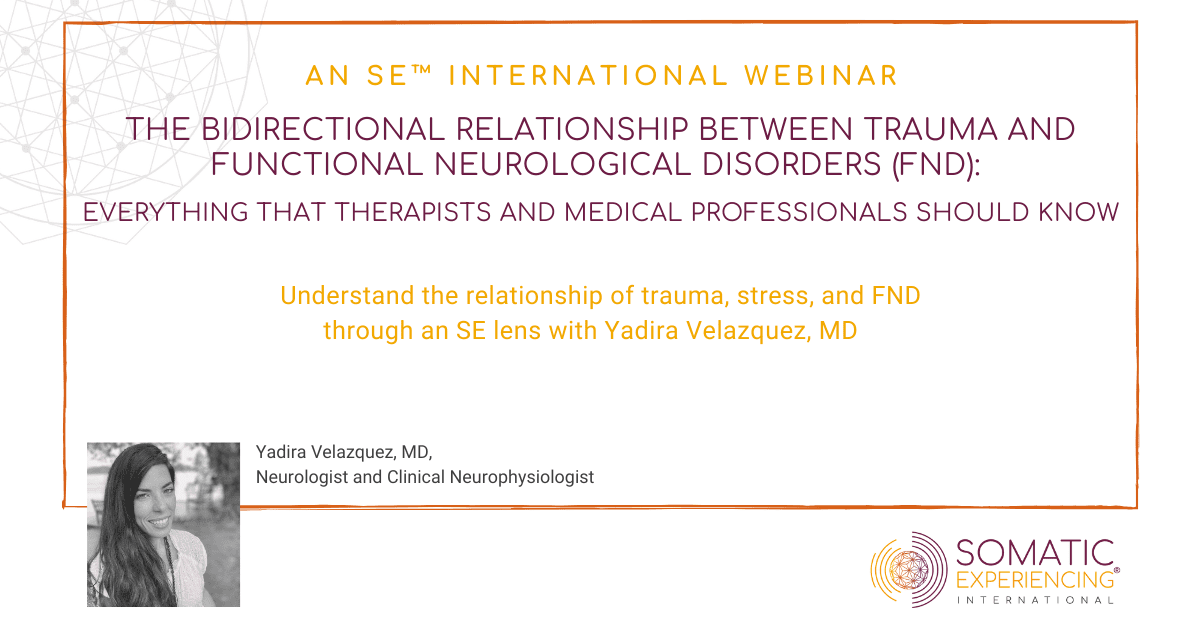Important Update: SEI Video Resources
From December 5 2025 to January 23, 2026, we’ll be upgrading to the new SEI Student and Member Portal. During this time, purchasing new video content will be paused.
You can still access your previously purchased videos by logging into your SEI Media Library account as usual.
Have questions? Contact us anytime!
The Bidirectional Relationship between Trauma and Functional Neurological Disorders (FND): Everything that Therapists and Medical Professionals Should Know – Yadira Velazquez, MD

Description
In this webinar you will learn: Understanding Trauma & Stress: Without understanding trauma, we are more likely to adopt behaviors and beliefs that are negative and unhealthy. However, when we understand trauma and stress we can act compassionately and take well- informed steps toward wellness. Compassion & Dependability: Trauma is overwhelming and can leave us feeling isolated or betrayed, which may make it difficult to trust others and receive support. However, when we experience compassionate and dependable relationships, we reestablish trusting connections with others that foster mutual wellness. Collaboration & Empowerment: Trauma involves a loss of power and control that makes us feel helpless. However, when we are prepared for and given real opportunities to make choices for ourselves and our care, we feel empowered and can promote our own wellness. To analyze the differences and implications of the terms hysteria, psychosomatic, psychogenic, somatic symptom disorder, and functional neurological disorders (FND). To review the epidemiology, risk factors and health care costs of somatic symptom disorder and FND. To understand the etiological models involved in the co-existence of somatic, emotional and mental symptoms, such as: top – down mechanisms (psychological model and the role of the limbic system), bottom-up pathways with origin in physical injury, the role of stressors, childhood trauma and epigenetics, defense mechanisms, neurobiological models, hypnosis, cognitive and learning theories. To discuss the importance of collaboration between therapists and medical professionals. To review research opportunities in these fields. To determine how we can provide comprehensive care to our clients. To recognize the somatic manifestations of trauma, mental and emotional disorders. To detect how somatic injury and trauma can lead to psychological illnesses.
This webinar is 1 hour and 47 minutes long.

